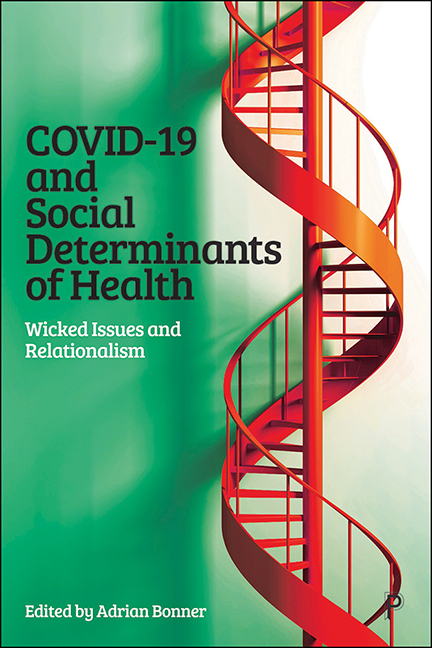Book contents
- Frontmatter
- Miscellaneous Frontmatter
- Contents
- List of figures and tables
- Notes on contributors
- Foreword
- Introduction
- Part I Wicked issues and relationalism
- Part II Regionalism and geopolitical environments
- Part III Public sector, COVID-19 and culture change
- Part IV The third sector
- Part V The case for relationalism
- Part VI Engagement and proposed changes
- Conclusion
- Appendix The Centre for Partnering
- Index
Conclusion
Published online by Cambridge University Press: 18 January 2024
- Frontmatter
- Miscellaneous Frontmatter
- Contents
- List of figures and tables
- Notes on contributors
- Foreword
- Introduction
- Part I Wicked issues and relationalism
- Part II Regionalism and geopolitical environments
- Part III Public sector, COVID-19 and culture change
- Part IV The third sector
- Part V The case for relationalism
- Part VI Engagement and proposed changes
- Conclusion
- Appendix The Centre for Partnering
- Index
Summary
The six parts of this book have focused on global concerns relating to the wicked issues of the COVID-19 pandemic and the climate change crisis. Lessons learned from international, national and local approaches to these wicked issues provide an insight into the linked issues of social and health inequalities, individual and family poverty, loss of employment, domestic abuse, housing and homelessness, and other adverse determinants of health. In 2023 the world is at a tipping point in relation to the control of the COVID-19 pandemic and the threats to human life and the environment resulting from climate change, and the threat of global conflict emerging from the invasion of Ukraine by Russia. At the time of writing more than 4 million refugees have left Ukraine, and the number of deaths is in excess of 7,000 (Anon, 2022c).
Globalism and the increasing connectedness of communities around the world have contributed to the spread of the COVID-19 virus and its variants as a result of large-scale movements of people travelling between countries. From a socioeconomic perspective the major impact of lockdown measures, in the various countries, has had a severe economic impact on the viability of a large number of businesses with consequences for employment and the financial security of individuals and families. During the pandemic the aviation related industries were at particular risk during lockdown and the closing of national borders. Paradoxically, the significant drop in passengers using the global airlines, intended to reduce the spread of the virus and its mutations, reduced atmospheric emissions leading to clearer skies, which, in addition to other new experiences of people coping with lockdown, have increased the relationship between people and their awareness of the natural world, providing a political opportunity to progress the climate change strategy being developed, by a relational approach being promoted globally. However, local political divisions on reducing car use and energy generation are not without problems as noted in Chapter 6.
Although the number of deaths, worldwide, resulting from COVID-19 has not, to date, reached the levels of previous pandemics (see Introduction), the impact on individuals, families and local economies is considerable, leading to reflections on pre-COVID-19 lifestyles, community governance, and promoting questions relating to existing political, economic and behavioural arrangements.
- Type
- Chapter
- Information
- COVID-19 and Social Determinants of HealthWicked Issues and Relationalism, pp. 392 - 401Publisher: Bristol University PressPrint publication year: 2023

